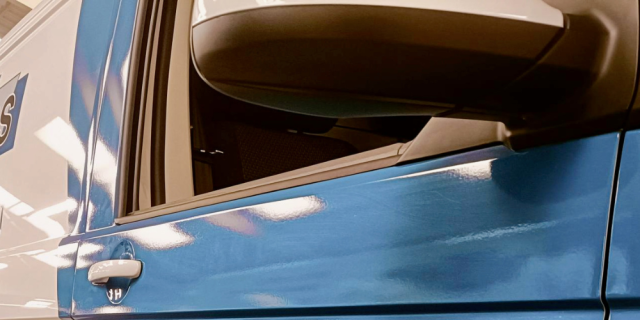Short and mid-term vehicle rental has been identified as the top mobility solution favoured by businesses in new research, being mentioned by more than six out of ten of those questioned.
The finding comes from the 2021 Arval Mobility Observatory Barometer, which provides a comprehensive and authoritative picture of the current trends affecting company cars and vans across the UK and Europe.
In total, 62% of respondents said they had already implemented a short or mid-term rental solution or planned to do so within the next three years. It was followed by private lease or salary sacrifice (61%), ride sharing, a mobility budget and public transport (all at 56%), then corporate car sharing (55%) and an app to book mobility solutions (52%).
Shaun Sadlier, Head of Arval Mobility Observatory in the UK, said: “This is perhaps a surprising outcome – on a list of innovative mobility solutions, the more traditional short and medium term vehicle rental perhaps look unlikely candidates to be considered a leading option.
“However, it remains an excellent solution for any flexible, short-term business journey need. This is especially the case with mid-term rental, which is increasingly being used to bridge the gap between car or van requirements that are measured in weeks and months, and those that are measured in years – a requirement that may be growing as a result of the impact of the pandemic.
“The other striking aspect of the results is the degree to which all the potential mobility solutions mentioned are being taken seriously by businesses. On a list of seven possible choices, every single one was mentioned by between 52-62% of respondents. This is clearly an area where there is considerable momentum.”
Shaun added that it was interesting to note the differences between planned adoption of mobility solutions and those already implemented, as well as making comparisons between smaller and larger fleets.
“Businesses are predicting that the implementation of various mobility solutions – such as car sharing, public transport, short or mid-term rental – will roughly double over the next three years. This is interesting because it reveals that the pandemic appears to be having a limited strategic impact in the medium-long term. Many mobility options rely on shared transport assets, which during the last year have been viewed as potentially increasing the risk of infection, but employers clearly don’t believe this will be a problem beyond a certain point in time.
“Also, planned adoption of mobility is much more pronounced among larger businesses. This is unsurprising. Mobility is very much part of a structured approach to corporate transport needs and bigger employers are bound to lead the way. However, we don’t believe that this means smaller businesses will be left behind, just that the implementation of these ideas will be a little slower among SMEs.”
WHICH OF THE FOLLOWING MOBILITY SOLUTIONS HAVE YOU IMPLEMENTED OR PLANNING TO IMPLEMENT IN THE NEXT THREE YEARS?*
| Overall | Fewer than 99 employees | More than 100 employees | |
| Short or mid-term rental | 62% (31%) | 46% (18%) | 81% (47%) |
| Ride sharing | 56% (29%) | 39% (18%) | 74% (42%) |
| Mobility budget | 56% (26%) | 37% (13%) | 77% (40%) |
| Public transport | 56% (34%) | 41% (22%) | 74% (48%) |
| Private lease or salary sacrifice | 61% (31%) | 42% (19%) | 83% (43%) |
| Corporate car sharing | 55% (30%) | 37% (17%) | 75% (45%) |
| App to book mobility solutions | 52% (23%) | 30% (11%) | 77% (36%) |
*Respondents that have already implemented a solution are shown in brackets as a subset of the larger percentage.




